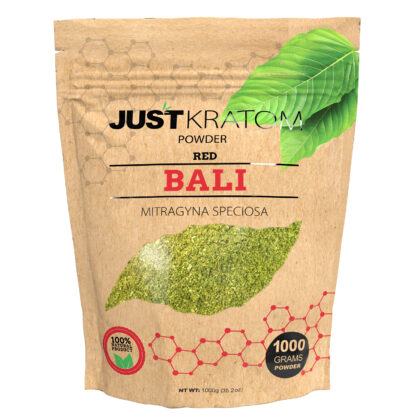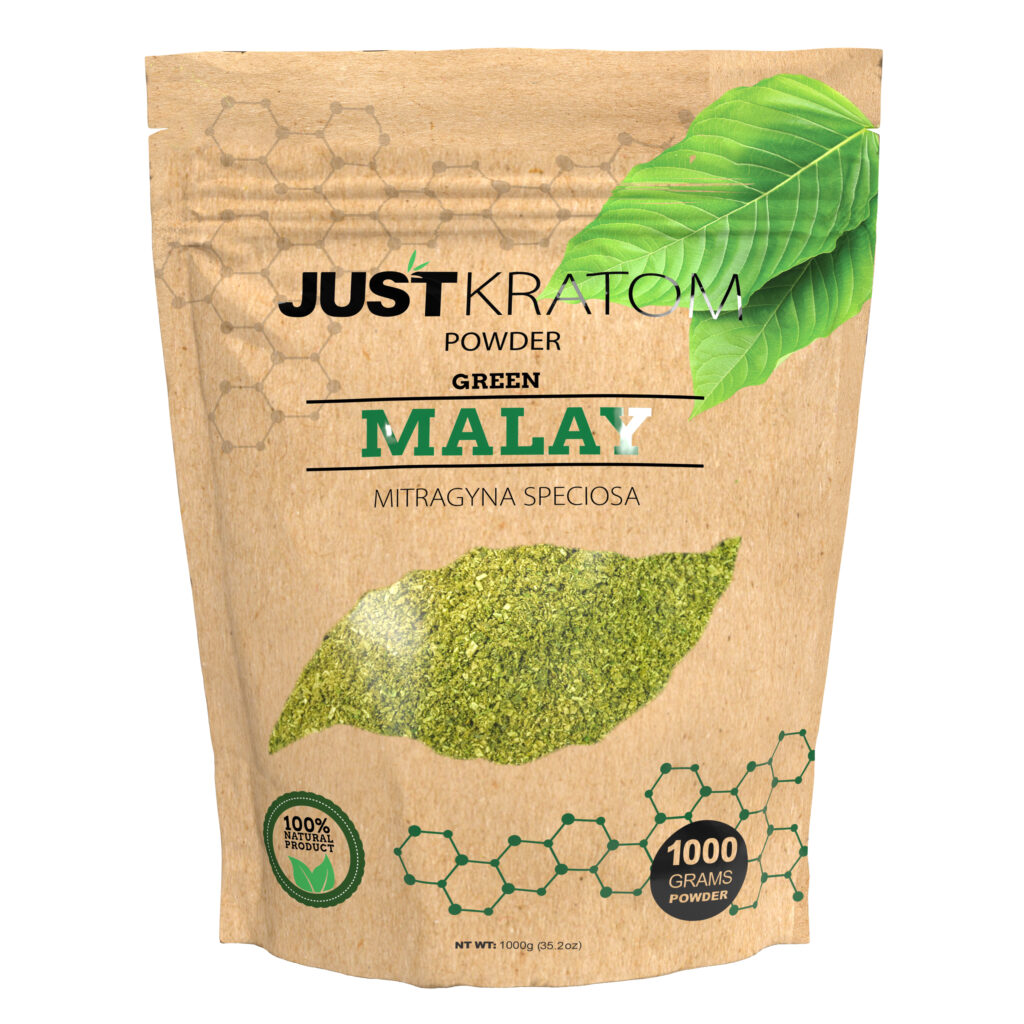Health Benefits of Organic Kratom
In an era where consumers are increasingly seeking natural alternatives for their well-being, kratom has emerged as a popular herbal remedy known for its potential health benefits. Amongst various strains and preparations, organic kratom powder has gained particular attention due to its purported advantages over non-organic counterparts.
Nutrient Content
Organic kratom powder is produced without the use of synthetic pesticides, herbicides, or fertilizers. This means that it is less likely to contain harmful chemicals that could have negative impacts on health. Proponents of organic kratom suggest that it may be a purer and safer option compared to non-organic varieties.
While research on the specific nutrient content of kratom is limited, some studies indicate that kratom leaves contain alkaloids such as mitragynine and 7-hydroxymitragynine, which are believed to contribute to its potential therapeutic effects. Organic cultivation practices may promote a higher concentration of these beneficial alkaloids.
Potential Detoxification Properties
One potential advantage of organic kratom powder is the reduced risk of exposure to harmful chemicals. Non-organic kratom may be exposed to synthetic pesticides, herbicides, and fertilizers during cultivation. These chemicals can potentially remain in the final product and could have negative health consequences.
- Reduced pesticide and herbicide residue.
- Potential for higher alkaloid concentrations.
- Environmental benefits through sustainable farming practices.
Some proponents of organic kratom also suggest that it may offer detoxification properties. Kratom contains alkaloids that are thought to bind to opioid receptors in the brain, which may have a detoxifying effect on certain substances. However, more research is needed to confirm these potential detoxification benefits of organic or non-organic kratom.
Reduced Exposure to Pesticides and Herbicides
One significant benefit of choosing organic kratom powder is the reduced exposure to potentially harmful pesticides and herbicides. Conventional kratom cultivation often relies on synthetic chemicals for weed control and pest management. These chemicals can leave residues in the final product, which consumers may ingest. By opting for organic kratom, individuals can minimize their exposure to these potentially harmful substances.
Risks Associated with Non-Organic Kratom
Non-organic kratom powder carries several risks due to the use of synthetic pesticides, herbicides, and fertilizers during cultivation. These chemicals can leave residues in the final product, potentially exposing consumers to harmful substances that may have negative impacts on health.

Pesticide Residue
The use of synthetic pesticides, herbicides, and fertilizers in non-organic kratom cultivation poses significant risks to consumer health. These chemicals can leave residues in the final product, leading to potential exposure to harmful substances. Pesticide residue can have various adverse effects on the body, including neurological damage, respiratory problems, and even cancer.
Herbicides, used to control weeds, can also contaminate kratom leaves and may disrupt endocrine function and cause reproductive issues. Fertilizers, while intended to promote plant growth, can introduce excess nitrates into the soil, which can contaminate water sources and have detrimental effects on human health.
Heavy Metal Contamination
One of the most serious risks associated with non-organic kratom is heavy metal contamination.
Kratom plants can absorb heavy metals from the soil, especially if fertilizers containing these metals are used. Heavy metals like lead, mercury, and arsenic can accumulate in the leaves and stems of kratom plants.
Consuming heavily contaminated kratom can result in serious health problems. Heavy metals can cause damage to the nervous system, kidneys, liver, and other organs.
Long-term exposure to heavy metals can lead to chronic diseases, including cancer, developmental disorders, and immune system deficiencies.
Herbicide Effects
The use of synthetic pesticides, herbicides, and fertilizers in non-organic kratom cultivation poses significant risks to consumer health. These chemicals can leave residues in the final product, leading to potential exposure to harmful substances. Pesticide residue can have various adverse effects on the body, including neurological damage, respiratory problems, and even cancer.
Herbicides, used to control weeds, can also contaminate kratom leaves and may disrupt endocrine function and cause reproductive issues. Fertilizers, while intended to promote plant growth, can introduce excess nitrates into the soil, which can contaminate water sources and have detrimental effects on human health.
One of the most serious risks associated with non-organic kratom is heavy metal contamination. Kratom plants can absorb heavy metals from the soil, especially if fertilizers containing these metals are used. Heavy metals like lead, mercury, and arsenic can accumulate in the leaves and stems of kratom plants.
Consuming heavily contaminated kratom can result in serious health problems. Heavy metals can cause damage to the nervous system, kidneys, liver, and other organs. Long-term exposure to heavy metals can lead to chronic diseases, including cancer, developmental disorders, and immune system deficiencies.
Certification and Labeling Standards
Certification and labeling standards play a crucial role in ensuring the quality, safety, and transparency of products. In the context of kratom, these standards help consumers identify organic options that have been cultivated without synthetic pesticides, herbicides, or fertilizers. These standards often involve rigorous testing and inspections to verify claims about a product’s organic status.
Organic Certification Bodies
Organic certification bodies play a vital role in verifying the authenticity of organic products, including kratom. These bodies establish and enforce standards for organic farming practices, processing, and labeling.
- Third-party verification
- Stringent inspection protocols
- Traceability systems
Choosing kratom from reputable sources that adhere to organic certification standards can help mitigate these risks. Consumers should look for products certified by recognized bodies such as the USDA Organic or other internationally accredited organizations.
Third-Party Testing
Certification and labeling standards are essential for ensuring the quality, safety, and transparency of organic kratom powder. These standards establish guidelines for cultivation practices, processing methods, and product labeling.
Third-party testing is a critical component of these certification processes. Independent laboratories analyze samples to verify the absence of prohibited substances, such as synthetic pesticides, herbicides, and fertilizers. This independent verification helps ensure that consumers are getting what they expect when purchasing organic kratom.
Labeling Practices to Watch For
Certification and labeling standards play a crucial role in ensuring the quality, safety, and transparency of products. In the context of kratom, these standards help consumers identify organic options that have been cultivated without synthetic pesticides, herbicides, or fertilizers.
Organic certification bodies play a vital role in verifying the authenticity of organic products, including kratom. These bodies establish and enforce standards for organic farming practices, processing, and labeling.
When purchasing kratom, pay close attention to product labels. Look for certifications from reputable organizations such as the USDA Organic seal or other internationally recognized bodies.
Beware of products that make vague claims about being “natural” or “eco-friendly” without providing any concrete evidence or certification.
Price Considerations
When exploring the world of kratom, the question of organic versus non-organic arises. Price often plays a significant role in this decision. Organic kratom powder typically commands a higher price tag compared to its non-organic counterpart. This price difference can be attributed to various factors, including the costs associated with sustainable farming practices, certification processes, and lower yields.
Premium Pricing for Organic Kratom
The premium pricing of organic kratom powder reflects the additional costs involved in its production. Organic farming practices, which prohibit the use of synthetic pesticides, herbicides, and fertilizers, often result in lower yields due to a reliance on natural pest management and soil fertility enhancement methods.
Certification processes for organic products also contribute to the higher price. Third-party verification agencies conduct rigorous inspections and testing to ensure compliance with organic standards, adding to the overall production costs.

Consumers willing to invest in organic kratom are often seeking a product that minimizes exposure to potentially harmful chemicals and supports sustainable farming practices. The premium price reflects the value placed on these qualities.
While the cost difference may be a consideration, many consumers prioritize the potential health benefits and environmental advantages associated with organic kratom powder.
Cost Savings with Non-Organic Options
Price is a significant factor for many consumers when choosing between organic and non-organic kratom. Non-organic kratom is typically more affordable because it does not involve the additional costs associated with sustainable farming practices, certification processes, and lower yields.
Organic kratom powder often comes at a higher price due to the cost of organic farming methods, certification procedures, and generally lower crop yields.
The difference in price can be substantial, making non-organic kratom a more budget-friendly option for some consumers.
Sustainability Implications
Sustainability considerations are crucial when evaluating the production and consumption of kratom powder. Organic kratom production minimizes environmental impact through practices that promote biodiversity, soil health, and water conservation.
Conventional kratom cultivation often relies on synthetic pesticides and fertilizers, which can pollute waterways, harm beneficial insects, and contribute to soil degradation. Organic methods, such as crop rotation, compost use, and natural pest control, offer a more sustainable approach.
Choosing organic kratom supports environmentally friendly practices and reduces the ecological footprint associated with kratom production.
Buy premium Kratom Powder in bulk
- Chin Augmentation With Chin Filler Near Westcott, Surrey - September 20, 2025
- Can You Use The Craftsman Series Vape For CBD Cartridges? - September 18, 2025
- Buddy Ebsen Quotes - September 16, 2025
